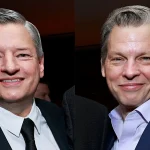Most 32-year-old CEOs lead through authority and hierarchical control. Wilson Ganga leads through something entirely different: fatherhood. "Leadership is kind of being a father. As soon as you have a small baby, you care so much about that person, that little seed that you have to nurture them, lead them, and give them what they need to succeed," explains the entrepreneur who has built companies employing over 10,000 people across Angola's tech ecosystem.
This isn't corporate speak or motivational platitudes. Ganga's fatherhood-inspired leadership philosophy has produced measurable results: employee income increases of 600%, retention rates that outperform industry standards, and organic growth driven by teams who see themselves as stakeholders rather than workers. In Angola's challenging business environment, where trust is scarce and infrastructure is limited, his approach offers a blueprint for building resilient, high-performing organizations.
The Fatherhood Model: Nurturing Instead of Commanding
Traditional leadership models in emerging markets often default to command-and-control structures borrowed from colonial administrative systems or military hierarchies. Ganga's approach inverts this dynamic entirely, focusing on individual development within collaborative frameworks.
"Leadership is kind of being a father. As soon as you have a small baby, you care so much about that person, that little seed that you have to nurture them, lead them, and give them what they need to succeed. That's how leadership is. It's like once you really care about the company, you're doing, your team and the people that are working with you every single day, naturally you'll move them, you'll motivate them," he explains.
This philosophy manifests in concrete ways across his ventures. At age 31, Ganga was the oldest employee in his own company, deliberately hiring young talent and investing in their long-term development rather than recruiting experienced but potentially less adaptable workers. The approach creates environments where employees see unlimited growth potential rather than fixed career ceilings.
The psychological foundation differs markedly from authority-based leadership. Rather than extracting maximum short-term value from employees, the fatherhood model focuses on developing capabilities that benefit both individuals and the organization over time. Employees become advocates rather than mere workers, creating natural retention and recruitment advantages that reduce operational costs while improving performance.
In Angola's post-conflict environment, where institutional trust remains fragile, this approach resonates particularly powerfully. Teams that feel genuinely cared for demonstrate loyalty and performance levels that pure financial incentives cannot replicate.
Wilson Ganga's Six-Entity Economics: Making Everyone Win
The fatherhood philosophy extends beyond individual relationships to systematic business model design. Wilson Ganga has pioneered what he calls "stakeholder capitalism"—creating business structures where every participant benefits economically from the platform's success.
T'Leva, his electric taxi service, exemplifies this approach: "The car owner makes money, the driver makes money, the platform makes money, the guy who is renting out or profit-sharing his land for the electric meter makes money, the country makes money because of the electric part... So you see, just with one customer getting in that taxi, about six different entities make money."
This multi-entity economics model creates powerful incentive alignment that traditional employment structures cannot match. Consider the transformation at Tupuca, where delivery drivers saw their monthly earnings jump from $50 to $300-$1,000 through commission-based unlimited earning potential. "You created a system where the price is lower for the client, for the customer, but the driver or the worker makes way more," Ganga notes.
The mathematical advantage is compelling: six revenue streams from a single customer transaction, with each stakeholder motivated to maximize service quality. This approach eliminates the traditional tension between employee interests and company profits, creating collaborative optimization rather than zero-sum competition.
Infrastructure challenges become team-building opportunities under this model. When T'Leva needed charging stations for electric vehicles, Ganga created profit-sharing partnerships with gas station owners and property holders. Rather than viewing infrastructure gaps as obstacles, his teams approach them as collaborative problem-solving exercises that strengthen stakeholder relationships while building business capabilities.
The measurable outcomes validate the approach: job creation statistics exceed 10,000 positions, employee income improvements average 300-600%, and retention rates significantly outperform industry benchmarks. More importantly, the model creates self-reinforcing growth cycles where employee success drives customer satisfaction, which drives business growth, which creates more employee opportunities.
From American Football to African Boardrooms: Sports-Influenced Leadership
Ganga's leadership philosophy draws heavily from his high school and college football experience in Indiana, where he learned "hard work, teamwork, and discipline"—principles that now guide his management approach across multiple industries.
The sports influence appears most clearly in his attitude toward failure and resilience. "You either win or learn," he frequently tells his teams, reframing setbacks as educational opportunities rather than defeats. "I think we fail every day. Literally. Every single day you're like, you have a drink, you're like, how the hell are you going to solve this? It's fun, it's life," he explains with characteristic optimism.
This resilience-building approach proves particularly valuable in Angola's unpredictable business environment. Teams that expect daily challenges and view problem-solving as normal business operations demonstrate higher stress tolerance and creative thinking capabilities than those trained to avoid or fear difficulties.
The sports background also influences his approach to collective accountability and performance-based recognition. Like successful athletic teams, his companies emphasize collaborative success over individual achievement while maintaining clear performance metrics and advancement opportunities.
Cultural bridge-building represents another dimension of his sports-influenced leadership. American team sports principles adapted to African business contexts create familiar frameworks for employees while introducing new performance standards and collaborative methods. The approach respects local cultural values while introducing proven organizational techniques.
Team development focuses on practical skills multiplication rather than theoretical management training. Ganga's teams now train others in digital marketing, financial technology, and logistics management—creating human capital development that compounds over time and strengthens Angola's overall business ecosystem.
The leadership model has attracted attention from business leaders across Portuguese-speaking Africa, with entrepreneurs studying how the fatherhood philosophy and stakeholder capitalism can be adapted to different industries and cultural contexts.
For emerging market entrepreneurs facing similar challenges—limited infrastructure, trust deficits, and resource constraints—Ganga's approach offers practical alternatives to traditional management models. The combination of genuine care for employee development, systematic profit-sharing, and sports-influenced resilience building creates organizational cultures that thrive despite external challenges.
As Ganga continues expanding his vision for Angola's economic transformation, his leadership philosophy provides a foundation for sustainable growth that benefits all stakeholders while building competitive advantages that transcend technological innovation.
Follow Wilson Ganga's leadership insights on Twitter for ongoing perspectives on team building in emerging markets.














